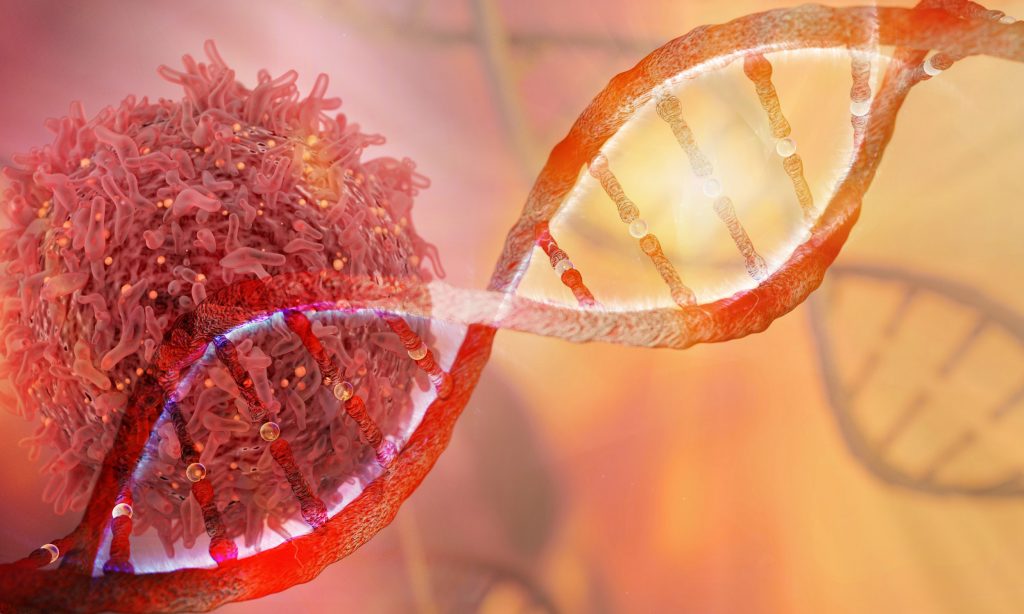A new compound targeting an unexpected vulnerability in triple negative breast cancer highlights the requirement for MDM2 in tumor cell survival: an MDM2-targeted degrader kills p53-inactivated TNBC cells, as shown by a study published on Cancer Discovery, suggesting a new therapeutic target.
Functional inactivation of the p53 tumor suppressor by point mutations or inhibition by deregulated E3 ubiquitin ligase MDM2 and its homolog, MDMX, is the most frequent alteration in human cancers and triple-negative breast cancers frequently inactivate p53, increasing their aggressiveness and therapy resistance. In this paper, authors designed a new PROteolysis TArgeting Chimera (PROTAC) to target MDM2, since MDM2 loss in p53 mutant/deleted triple negative breast cancer cells in two-dimensional/three-dimensional culture and triple negative breast cancer patient explants, including relapsed tumors, causes apoptosis while sparing normal cells. MDM2-PROTAC is stable in vivo and treatment of triple negative breast cancer xenograft-bearing mice demonstrates tumor on-target efficacy with no toxicity to normal cells, significantly extending survival; transcriptomic analyses revealed upregulation of p53 family target genes. Data challenge the current view that MDM2 expression is not required for the survival of p53-deficient tumor cells and show that MDM2 is required for p53-inactivated triple negative breast cancer cell survival; thus PROTAC-targeted MDM2 degradation is an innovative potential therapeutic strategy for triple negative breast cancer. As stated in an accompanying editorial, the study «raises a number of unre- solved questions but it clearly opens a way for innovative and appealing therapeutic options applicable not only for wild-type but also for mutant p53–expressing cancers. For future development, it would be necessary to broaden the study to more preclinical cancer models. Focusing on issues of broadening applications, identification of resistance mechanisms, and minimizing toxicities will help to incorporate MDM2-PROTAC, alone or in combination, in clinical practice».

A new compound targeting an unexpected vulnerability in triple negative breast cancer highlights the requirement for MDM2 in tumor cell survival: an MDM2-targeted degrader kills p53-inactivated TNBC cells, as shown by a study published on Cancer Discovery, suggesting a new therapeutic target.
Functional inactivation of the p53 tumor suppressor by point mutations or inhibition by deregulated E3 ubiquitin ligase MDM2 and its homolog, MDMX, is the most frequent alteration in human cancers and triple-negative breast cancers frequently inactivate p53, increasing their aggressiveness and therapy resistance. In this paper, authors designed a new PROteolysis TArgeting Chimera (PROTAC) to target MDM2, since MDM2 loss in p53 mutant/deleted triple negative breast cancer cells in two-dimensional/three-dimensional culture and triple negative breast cancer patient explants, including relapsed tumors, causes apoptosis while sparing normal cells. MDM2-PROTAC is stable in vivo and treatment of triple negative breast cancer xenograft-bearing mice demonstrates tumor on-target efficacy with no toxicity to normal cells, significantly extending survival; transcriptomic analyses revealed upregulation of p53 family target genes. Data challenge the current view that MDM2 expression is not required for the survival of p53-deficient tumor cells and show that MDM2 is required for p53-inactivated triple negative breast cancer cell survival; thus PROTAC-targeted MDM2 degradation is an innovative potential therapeutic strategy for triple negative breast cancer. As stated in an accompanying editorial, the study «raises a number of unre- solved questions but it clearly opens a way for innovative and appealing therapeutic options applicable not only for wild-type but also for mutant p53–expressing cancers. For future development, it would be necessary to broaden the study to more preclinical cancer models. Focusing on issues of broadening applications, identification of resistance mechanisms, and minimizing toxicities will help to incorporate MDM2-PROTAC, alone or in combination, in clinical practice».
.